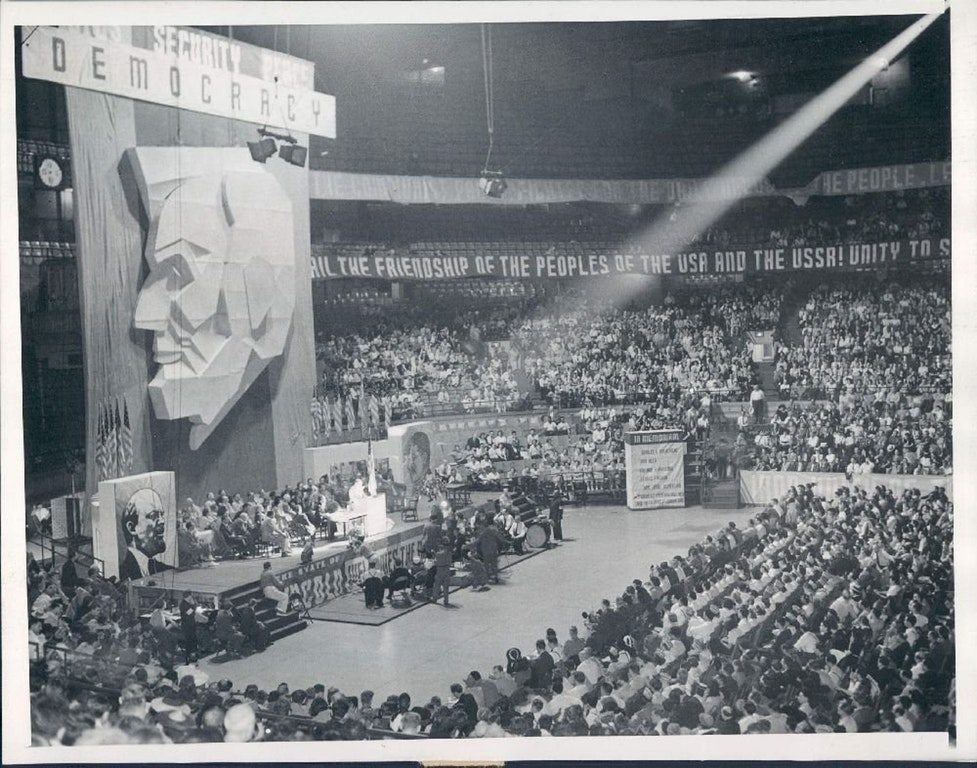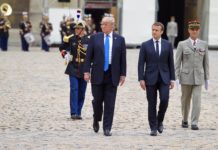Fighting for the “working-class” or uniting the “people”? New question, old issue. In this piece, Anton Jäger explains how American communists went through a similar debate in the 1930s. From that experience, several conclusions can be drawn, not least the need for “left-populism” to go beyond slogans, communication, and identity politics.
On April 26th, 1935, the Communist Party of the United States – at the time one of the most potent organizations on the American Left, counting a total of 66,000 members – held its First American Writers’ Congress. Hosted by New York’s New School, the event was the Communist Party’s very first conference dedicated exclusively to the theme of political art; its task was to ‘extend the reach of the organization’, preparing a ‘decaying capitalism’ for ‘the establishment of a workers’ government’, instantiated (rather meekly perhaps) through the medium of literature. The list of attendees – Americans Mike Gold, James T. Farrell, literary lions such as André Malraux, Ford Madox Ford and Louis Aragon – was reputable, to say the least. This impressive line-up, however, was not what made the conference go down in history. Rather, the Writers’ Congress owed its notoriety to a speech by a one specific participant, held on the morning of second day; ‘Revolutionary Symbolism in America‘, by the literary critic Kenneth Burke, which still remains one of the most riveting texts ever written on the American Left. As Burke noted in his opening remarks to the conference:
‘Myths’ may be wrong, or they will be dispensed with. In the last analysis, they are basic psychological tools for working together. A hammer is a carpenter’s tool; a wrench is a mechanic’s tool; and a ‘myth’ is the social tool for welding the sense of interrelationship by the carpenter and the mechanic, though differently occupied, can work together for common social ends. In this sense a myth is that works are as real as food, tools, and shelter are.
Burke’s proposal was as simple as it was daring: his argument was that Communists had, in fact, much to learn from the history of symbolism in America, and more specifically the central category of ‘symbolism’ – ‘the people’. ‘Just as the Church invariably converted pagans by making the local deities into saints’, he spoke, ‘one cannot extend the doctrine of revolutionary thought among the lower middle classes without using middle-class values.’ ‘I do not suggest,’ he cautioned instantly, ‘that a proletarian emphasis should be dropped from revolutionary books, and the rigors of the worker must continue to form a major part of revolutionary symbolism.’ Yet, as a whole, he did not think American Communists should shy away from venturing into an even more radical tactic: ‘the symbol I should plead for, as more basic, more of an ideal incentive, than that of the workers, is that of the people. ‘
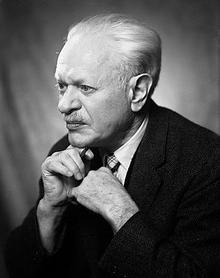
Tactics and Ethics
Yet why ‘the people’? The advantages of such a symbol, Burke claimed, were manifold. Firstly, it had the ‘tactical advantage’ or ‘pointing more definitely in the direction of unity… it contains the ideal, the ultimate classless feature which is the revolutionary’ symbol of allegiance. ‘ Additionally, ‘it can borrow the advantages of nationalistic conditioning’, and ‘at the same time being used to combat the forces behind their class prerogatives behind a communal ideology.’ Accepting ‘the people’ as the basic symbol not only had contemporaneous advantages, however; it also offered an easier bridge to previous republican vocabularies, which had long been part of the vernacular of the American revolutionary tradition – the language of Jefferson, Franklin and Paine, whose exaltation of the ‘yeoman-farmer’ rhymed badly with the Marxist language of’ the worker, who never had disposal of his or her tools, and was first dismissed as a mere ‘wage-slave‘ to his employer.
Evidently, Burke also acknowledged its dangers. The critic referred to a recent Californian naval strike, in which the Catholic demagogue Father Charles Coughlin had castigated a group of American strikers as ‘holding up the people’. With due vigilance, however, he thought that the ‘propagandistic’ value of the symbol was simply too great to be ceded to reactionaries. ‘A symbol must embody an ideal’, he said, ‘yet there are few people who really want to be, as a human cog in an automobile factory, or as a big truck. Such rigorous ways of life enlist our sympathies, but not our ambitions.’ Since the worker was defined through its negativity, Burke claimed, the proletarian condition was one of ‘dearth’, not of positive content. ‘The people’, in turn, was precisely such a symbol: it symbolized autonomy rather heteronomy, ‘capacity’ rather than ‘lack’: ‘I am suggesting that an approach based on the positive symbol of’ the people ”, rather than upon the negative symbol of’ the worker ” ‘makes more natural for this child of identification political alignment is fused with broader cultural elements.’
The critic ventured even further, however. There was a sense in which Burke’s speech tried to convey a certain acuity, a deeper attempt at conceptual subversion. Unconsciously perhaps, he was aiming to rewrite the Marxist tradition itself, showing how a set of material preconditions were scarcely a sufficient criterion for a revolutionary action, emphasising the role revolutionary ‘symbolism’ had to play in every Marxist politics. Like another famous left-dissident in the 1930s (1935 was, interestingly, one of the most productive years for Gramsci’s notebooks) Burke’s speech ‘had the discomforting feel of ideological deviance’, as one commentator noted; he was ‘doing Gramsci’s work before Gramsci’, an ‘historically independent Gramscian practice’ before the ‘discovery of the popular front.’ Although Burke never used any specifically Gramscian expressions (notions such as ‘war of position’, ‘hegemony’ and ‘historical bloc’ were contextually unavailable), it was clear that he was troubled by similar questions as the Italian communist was. One commentator has even argued Burke was an early proponent of the so-called ‘populist’ turn in Marxism, inciting fellow socialists to join ‘class’ with ‘identity’, ‘the material’ with the ‘symbolic’. This was, to put it provocatively, Ernesto Laclau avant la lettre.
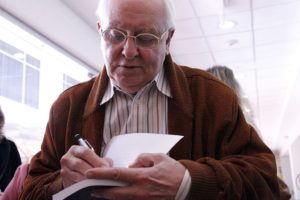
‘People’ and ‘Volk’
And, like Laclau, Burke was met with considerable apprehension on behalf of his public. ‘A great danger’, noted one German respondent, ‘reposes in this formulation of ‘the people. Hitler and Rosenberg used it. They said, let us not talk any more about the workers, let us talk about the people… If the proletariat can become a dangerous myth in the hands of reaction, how much more dangerous is the vague symbol of the people.’It was easy to see why these commenters dreaded Burke’s suggestion. Some of them had recently fled Nazi persecutions, whose usage of the word ‘Volk’ and ‘völkisch’ had always had a suspicious ring to it. On the other side of the Atlantic, it was the favoured instrument of counter-revolution, just as with Father Coughlin’s comments that ‘the workers’ were stopping ‘the people’ in their path. ‘We must not encourage such myths’, he pleaded, and ‘we are not interested in myth. We are interested in revealing the reality. We set up the ‘symbol’ of the worker because of the role which the worker plays in reality.’ The symbol of the people, in turn, was a product of the bourgeois revolution: the age of absolutism and the republican jacquerie, not the age of the industrial machine. ‘The bourgeoisie demanded the abolition of class privileges’, he continued, and ‘therefore it had the following of all the people.’ ‘Then it turned out that the people were divided into classes’, however, and ‘the word ‘people’… became a reactionary slogan – not because of any philosophy of myths, but because it concealed the reality, the actual living antagonism between the social classes.’ ‘I can understand’, Burke replied, ‘how such resistance arises, since the many channels of thought are in control of reactionaries.’ ‘I still insist’, however, ‘that their function as propagandists will not be complete unless they do thus propagandize by not confining themselves to a few schematic situations, but engaging the entire range of our interests.’
Revolutionary Symbolism Today
What debates might qualify as the contemporary thrust of Burke’s speech? Judging by the trajectory of European politics in the last five years – from the 2011 protest movements, to the success of left-wing ‘populist’ movements in recent national elections – few of Burke’s original points seems to have lost their pertinence. Debates on whether left-wing movements ought to prioritise ‘the worker’ or ‘the people’, ‘the classes’ or the ‘masses’, ‘identity’ over ‘interest’, occupy an even more prominent place within left-wing annals, not seldom at the cost of a certain acrimoniousness. And nowhere has this debate between ‘symbolists’ and ‘materialists’ been waged with more intensity than in the debate on left-wing populism.
It is, of course, difficult to pin down what one really should mean by such a left-populism – particularly from a Laclauian perspective. Seen from the perspective of classical Marxism, such a trade-off between ‘class’ and ‘mass’, of course, seems ambiguous at best; at worst, it is positively dangerous. Already in 1986, in her The Retreat From Class, Canadian historian Ellen Meiksins Wood had castigated Ernesto Laclau and his poststructuralist confraters for abandoning classical materialism for a linguistic determinism. Recently, the American philosopher Jodi Dean has reiterated Wood’s accusation in a longer reflection on left-populism. ‘Compatible with different political regimes’ she notes, ‘populism is the politics of constructing a political identity via the articulation of a chain of equivalences.’ Following Laclau, she also claims ‘populism is indifferent to its setting, as if there were no material determinations of political possibility.’ In this optic, she states, ‘the state and the economy are taken as given, the task of identity construction and articulation occurring in civil society. Populist politics operates within the parameters of the given’ and ‘doesn’t try to change them.’
Dean’s main accusation, however, does not apply to this charge of immobilism. Rather, she makes the case that left-wing populism is itself an enthusiastic participant in the most contested political tactic of our age – namely, identity-politics. A final ‘problem with left populism’, she claims, ‘is its continued embrace of identity as a central category. The cultural and electoral politics of the last few years have demonstrated the complete saturation of identity as a political category.’ Except for making an empirical claim – Dean tries to show how populism’s participation in the reigning discursive regime is noxious for its strategic effectivity – she reads it as a symptom of a widespread but crucial imaginative error on the left, which cannot initiate a thorough return to the basics of Marxian political economy – ‘just like the politics of multitudes and affinity groups’, Dean claims, ‘so does populism occlude… the fundamental antagonism at the heart of capitalism: capitalism requires proletarianization, the production and reproduction of the exploited and immiserated, those with nothing to sell but their own labor power.’
One cannot help but be reminded of the charges originally levelled at Burke when he presented his speech in 1935. Myths? Aren’t myths dangerous? Isn’t the symbol of ‘the people’ bourgeois (or, even worse, petty bourgeois)? Where is the proletariat? Where, in the end, is ‘labour-power’, ‘class organisation’, ‘class independence’, and where on God’s green earth is ‘capitalism’? Burke himself, of course, repeatedly insisted that he was not willing to renounce the essence of the Marxian critique of political economy, certainly not on an epistemological level; his plea for a populist aesthetics, it seems, situated itself purely on the level of ‘language’ and, ergo, propaganda – he thought that the language of ‘class’ and that of the ‘people’ were historically compatible, as if the one could be tactically subsumed under the other (the ‘people’ could be used as a tactical expression, so to speak, but should not come to dominate in matters of strategy). Like other Communists at the conference, Burke referred to a longer history of American socialism (Eugene V. Debs) who had found no problem in squaring the circle of ‘symbolism’ and ‘interest’. And this dichotomy certainly did not hold for the case of original American Populism of the 1890s, of which Debs was an enthusiastic member – before he became a Kautskyian Marxist. As noted by the American historian Charles Postel in a recent essay, ‘at its core Populism represented interest-based and class-based farmer-labor politics’, with a ‘cooperative commonwealth’ to be realized by way of majoritarian electoral democracy’, sharing considerable ‘ideological terrain with other labor and evolutionary socialist movements.’
Yet the problem is that contemporary left-wing populism seems barely aware of this fact. It often shrugs its shoulders at the fact that the very cradle of modern populism (the People’s Party was also the formation for which the word ‘populism’ was first coined) not necessarily sought to forge a coalition based on ‘identity’. As firmly as it is centred around the notion of ‘identity’ – an ‘exclusionary form of identity politics’, as one critic has recently pointed out – left-wing populism has tremendous difficulty in acknowledging the importance of class in capitalism’s changing formation in the last thirty years. As William Davies has warned, contemporary populism in this sense seems to ‘perpetuates certain aspects of ‘neoliberal reason’ in targeting ‘those with a monopoly on representation such as journalists, scholars, established political parties’ rather than ‘those with a monopoly on production’ (thereby suggesting, as he claims rather unfairly ‘a further radicalisation of a neoliberal logic’). Yet perhaps it might even be necessary to hear warn of the danger of left-wing populism becoming a mere ‘anti-particularist’ identity politics; a charge often levelled by liberal critics such as Jan-Werner Müller, which, although fundamentally dishonest in its intention, is not always off the mark in its analytical bite. In contrast to the more micro-political forms of identitarianism, often visible on the Anglo-Saxon left, such a ‘populism’ would then fall into the trap of never even breaching the terrain of political economy, self-sufficiently relying on the need for identity-formation without ever wondering what such ‘popular identities’ are meant to achieve politically in the first place (politics in the end, as we must never forget, is about what one does, not about what or who one is).
It might also seem tempting to dismiss such questions as academic hair-splitting. What is the import of choosing between ‘identity’ and ‘interest’, ‘mass’ and ‘class’, if the right kind of rhetoric gets us where we want to be? Why – one might respond- not both; ‘people’ and ‘class’, the ‘popular’ as the ‘highest stage of socialist politics’, as Laclau already proposed in 1977?
But how does such an excessive focus on ‘identity-formation’ pan out in practice? The last great instance of left-wing populism on the European continent – the so-called ‘Greek spring’ of 2015 – was characterised by an immensely fruitful mode of mobilisation. Late June, as the day of the Greek referendum grew closer and closer, the Syriza-leadership mobilised no less than 150.00 protesters on Syntagma-square, bringing back memories of anti-regime campaigns in the 1970s. Yet the capacity to mobilise or to put to work a discursive reservoir (here, the lore of Greek nationalism) cannot simply be equated with ‘politics’ per se. And as the Syriza-episode illustrated so painfully, the capacity to the mobilise does not necessarily imply the capacity to command institutional change – in this case, a shake-up of the architecture of the eurozone. An equivalential front might well be formed (‘the Greek people’); an enemy can be found (‘the European oligarchy!’); edifying symbols can be gathered (‘OXI!’), ultimately to express itself in a supreme act of symbolism – a plebiscitary acclamation. But then, inevitably: disorientation, betrayal, disintegration, anger, resentment (in that order) – only to end with complete and utter nihilism, with Tsipras signing nothing less than an anti-strike bill in late January 2018. ‘Symbolism’, as became painfully clear, was barely enough to bring austerity to an end, and even the most popular of ‘myths’ could not undo the depravity of the new memoranda.
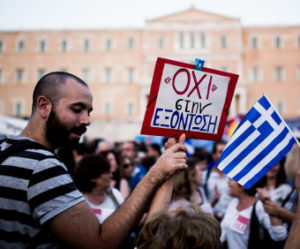
All these things, of course, were far from Burke’s mind in 1935. But, in the end, it was also clear that his plea for a ‘symbolic politics’ did not fall on deaf ears in the Communist Party. In a 2003 review of Burke’s speech, historians Ann George and Jack Selzer sought to combat the ‘legend of Burke’s marginalization at the Congress’, too often promulgated in later accounts. In fact, as they pointed out, ‘Burke’s recommendation that ‘the people’ ought to be substituted for ‘the worker’ in Communist Party symbolism… was actually in moderate keeping with the Congress’ broad aim’. Burke, they claimed ‘was not so much marginalized by the Congress as identified with its controversies.’
Reconsidering ‘Identity’
The attempt to think ‘Marxism’ and ‘identity’ – or, in short, the attempt to think a left-wing populism – has always held its dangers. One should remain vigilant of those dangers even today. To think a ‘populism’ which never goes beyond ‘identity’, thereby succumbing to the very same gambit the alt-right has recently capitalised on, has always been one of the greatest of these. We should, of course, abjure the intellectual blackmail opposing ‘the people’ and ‘the class’, as an incentive to simply have our cake and eat it; yet neither should we become unaware of the structural bargain involved in trading the language of ‘class’ for that of the ‘people’, as is too often presupposed in contemporary musings on left-populism.
History serves as an ominous precedent here. As Burke spoke in New York the American Communist Party was steadily preparing its absorption into the Popular Front (and, consequently, absorption into the Democratic Party as such). At the same time, the Trinidadian Marxist C.L.R. James already gave different verdict on the behaviour of the foremost European Communist Party – the French PCF (Parti Communiste Français). ‘The French Communist Party’, he noted in 1934, ‘summons the whole French ‘nation’ to ‘struggle against two hundred families’; such is the Marxism of the most powerful section of the Third International.’ But James saw little revolutionary potential in such a strategy. ‘If it were a question of two hundred families’, he finished, ‘the whole matter could be settled any morning between nine and eleven.’
Interestingly, that also appeared to be the time at which Burke delivered his lecture at the Writers’ Congress – somewhere in the morning, between nine and eleven. And we know that, for Burke, few things were ever settled in such a short span of time.
(Picture: Meeting of the Communist Party of the United States in Chicago in 1939, strutting a portrait of President Lincoln (source: http://i.imgur.com/Bms2wLj.jpg))


